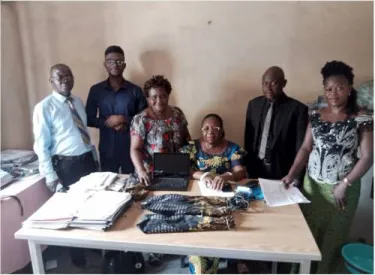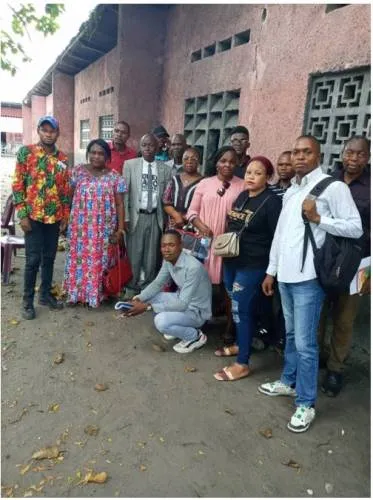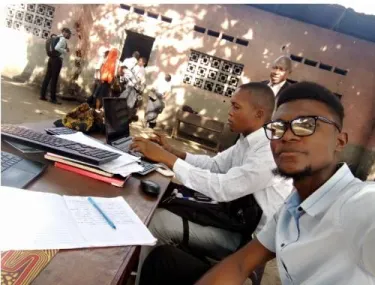Training Trainers in Technology
A Letter from José LaMont Jones, serving in the Democratic Republic of Congo
Summer 2023
Subscribe to my co-worker letters
Dear friends,
According to UNESCO (United Nations Educational, Scientific and Cultural Organization), more than 43% of student households have no access to the Internet. In sub-Saharan Africa, 89% do not, and 82% of students lack access completely! Information technology and communication (ITC) refers to the components and infrastructure that allow modern computing and, in turn, modern teaching. During the Coronavirus pandemic, from which the world is finally emerging, access to information technology was important to having access to education. Yet, UNESCO studies further show that 64% of primary and 50% of secondary teachers lack the necessary training to integrate technology into their classrooms. So, even if computers were available, their use would be limited, and their potential would not be fully realized.

In October 2022, the Presbyterian Community of Kinshasa (CPK) set out to bridge the education and technology gap. With the formation of the CPK Teacher Training Planning Committee and by listening to CPK staff at schools, technology training and implementation were recognized as important for updating CPK schools to provide better access and outcomes in education.
Prefect Helen Lusamba of the Presbyterian Institute of Anunga, was presented with affordable ITC hardware options and jumped on board to pilot a training program at her school. Her young staff was so excited about the pilot training project that nearly five people applied for each available seat in the training!

Institute Presbyterienne d’Anunga began as a primary school on the site of the Presbyterian Community of Kinshasa (CPK) Anunga parish at the cusp of the first wave of school construction support on part of the Presbyterian Church (U.S.A.). The secondary school was added in 1997 during the second wave of construction support during the period of 1970-2000. According to Rev. Jean Ntita Muamba, former coordinator of CPK Schools, “During this long period, CPK had obtained substantial and important aid for the education of Congolese youth.” This support allowed CPK schools to become important education providers in Kinshasa.
Years of political, social and economic challenges have eroded the physical and material resource infrastructures of the school … but not the spirit and enthusiasm of its teachers and staff. Today, IP Anunga continues to educate nearly 500 students (primary and secondary) and is positive about the future. Prefect Lusamba is “thankful for having been targeted for this technology training and prays that God will equip her staff for the task at hand.” She is committed to sharing the knowledge gained with other CPK schools.

Anunga Informatics Professor Dieu merci Mukeba and my assistant, Jean “Barnabas” Basisa, are leading the training that covers the use of Zoom, WhatsApp and the Google Suite Apps (Docs, Sheets, Slides, and Forms) for lesson preparation, communication, and, eventually, as classroom teaching tools. Despite the lack of computers and with very little practical experience (at a neighborhood Cybernet café), Professor Mukeba is hopeful for the practical aspect of using the more accessible mobile technology to increase the efficiency of his colleagues and provide an educational experience more in step with our modern world. My hope is that Anunga staff will be leaders in propagating this training not only to other CPK schools but to the schools throughout the Ville-Kinshasa metropolitan area. Prof. Mukeba anticipates this training “impacting other schools as they see how Anunga has evolved and want to learn more and improve their schools.”
Having access to information technology develops better students as life-long learners. By using accessible technologies, IP Anunga teachers are learning how to better prepare themselves for teaching 21st-century workplace/entrepreneurial skills that will bring their classrooms on par with the modern age. This pilot will test the potential, given the current landscape of scarcity, for using mobile technologies in the CPK classrooms with an impact on education, poverty, and generations of lack of access to the spoils of modern society.
Will you help me to develop this and other educational projects with CPK schools? Please donate today! Your financial support, encouragement, and prayers are greatly appreciated!
Jose LaMont Jones
